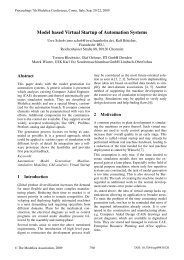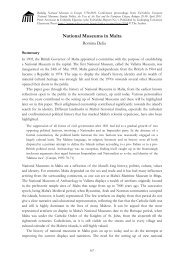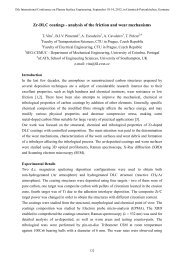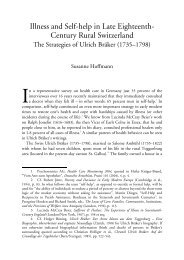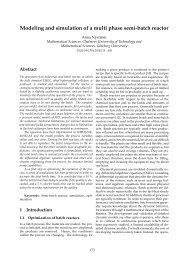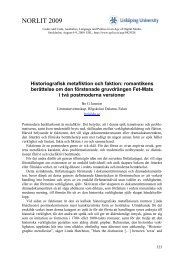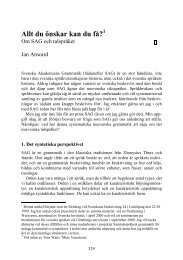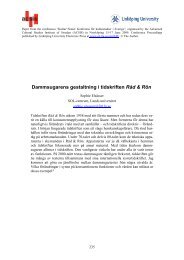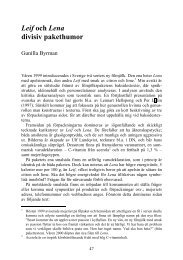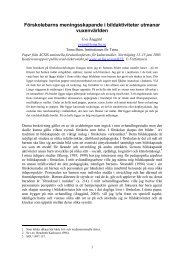Full article (pdf)
Full article (pdf)
Full article (pdf)
Create successful ePaper yourself
Turn your PDF publications into a flip-book with our unique Google optimized e-Paper software.
International Journal of Ageing and Later Life<br />
We found that the logic of care used in PHVs incorporates a process of<br />
learning to age healthily, learning to manage life with a loss of functionality,<br />
learning to cope with illnesses and pain, learning to sense wellbeing,<br />
learning to care for oneself, and so forth. Essentially, the preventive<br />
visit is about promoting skills of self-care and self-awareness so that an<br />
elderly person can learn to enjoy life. And the means to properly monitor<br />
oneself involve numerous techniques that constitute a continuous exercise,<br />
a practice of the self. 6 The instructions and negotiations that take place<br />
during a home visit reflect dilemmas though: How often does an older<br />
person have to be active, for how long and by using what kinds of<br />
exercise? How does one take care of the body?<br />
This local Danish example may be seen as part of a larger trend within<br />
the context of the European Union and its Active Ageing programs.<br />
As a new target user-group for prevention, the elderly are enrolled<br />
in the biopolitical aspiration of the active-ageing paradigm. This enrolment<br />
process may partially occur through home visits and take the form of<br />
‘‘a logic of care’’ (Mol 2008) and even involve elements of discipline and<br />
control. Hence, it makes sense to view the rationalities and technologies<br />
of the PHV as a strategic space for ‘‘biopolitics’’; a possible space for<br />
new forms of self-perception and experience of people’s bodies. The<br />
meaning of active ageing is negotiated in practice among individuals<br />
in relation to the meanings or ideologies are always already present in our<br />
societal framework, and many older people learn to recognise and<br />
embrace the potential of longevity through daily acts of walking<br />
and exercising. More studies with the same theoretical anchoring may<br />
develop this tradition of scholarship in a direction that gives more<br />
attention to the affective issues at play in accounts of the biopolitical,<br />
for example, address the problem of experience in order to perceive<br />
biopolitics as a historically specific formation of experience and<br />
embodiment.<br />
6 Foucault defines ‘‘practices of the self’’ as those reflective and voluntary practices<br />
by which people set themselves rules of conduct, and seek to transform themselves,<br />
to change themselves and their being that carries certain aesthetic and cultural<br />
values.<br />
22



